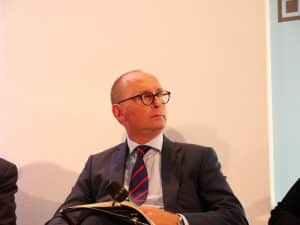Sustainable investment: “We need more clarity from regulators”

Redacción Mapfre
Environmental, social, and governance (ESG) investment has been one of the prevailing megatrends in recent years, and many firms have already begun to apply the methodology in their investment processes.
However, as it’s still in the process of development and subject to changes in regulations, it can be a source of uncertainty. In an effort to shed some light on this problem, in June 2020 the European Union (EU) approved the taxonomy of sustainable economic activities, which is a guide that “helps investors and companies to identify which projects (adversely) affect the climate and the environment,” as explained by the EU on its website.
Meanwhile, on March 10, 2021, the Sustainable Finance Disclosure Regulation (SFDR) entered into force, included in the EU Action Plan on sustainable finance.
The insurance industry has paid particular attention to this regulation, as it is directly affected by the personal and property damage caused by climate change and phenomena such as El Niño in Latin America.

“The industry is moving fast, but I don’t think we have been clear on the messaging. Not everything that counts can be counted, and not everything that can be counted counts. And this is where we find ourselves. I think we need more clarity, especially from the regulators,” explains José Luis Jiménez, MAPFRE’s group chief investment officer, during the annual conference organized in London by the Insurance Asset Risk working group.
Jiménez stresses that this inability to get the message across means that the end investor is unaware of what it means for an investment fund or pension plan to be categorized as Article 8 or 9. He’s not surprised that the European Commission has a review of ESG data reporting on its agenda.
In addition, the tools and the sale of companies' ESG data raise doubts among investors. “It would be best to return to the fundamental principles. We need to define our objectives, otherwise we’ll keep going around in circles without any clear way of measuring whether what we have done is right or wrong,” insists the MAPFRE group chief investment officer.
Another issue to consider involves emerging markets. In 2030, 90% of pollution will be produced in these countries, yet they are not being examined. “That’s why, no matter how well we do, it’s not enough,” he says.
The importance of the ‘S’ in ESG
While the social component of responsible investment has grown in importance in recent years, environmental issues continue to receive greater attention, partly because they are much easier to measure.
“Unfortunately, when we talk about ESG, we tend to focus on environmental issues and put the planet before people. This doesn’t sound like a very humanistic position. You have to integrate the three concepts of ESG, but the social part has to come first. At MAPFRE, we place great importance on people, on the ‘S’ in ESG. The reason for this social bias was already entered into our statutes at an Annual General Meeting in 1965,” explains Jiménez.
However, he believes that more effort needs to be made in this area by both the insurance and asset management industries. Jiménez urges companies to have an “open mind” and to take small steps forward by integrating and internalizing these changes.
“For example, a few years ago at MAPFRE, we launched the first fund that sought to promote the inclusion of people with disabilities in the companies in which we invested. There was no previous methodology to be followed, meaning we had to develop one from scratch with the help of foundations and organizations specializing in inclusion,” recalls the Group Chief Investment Officer.



